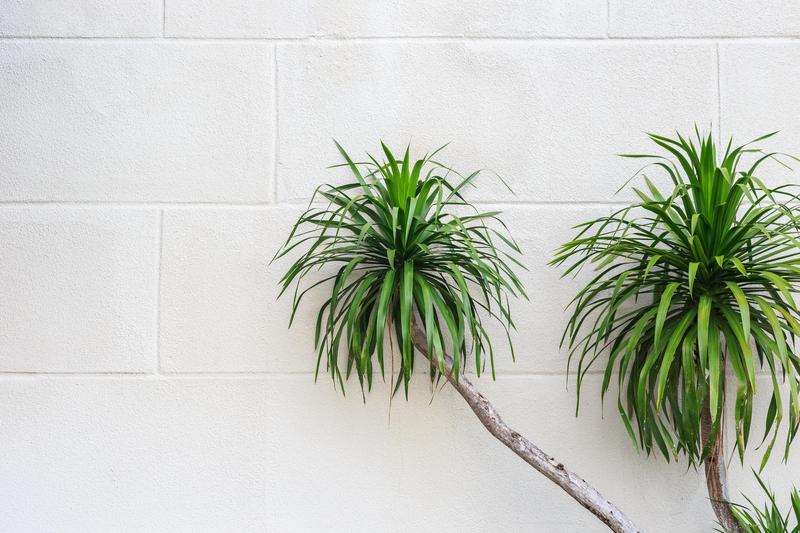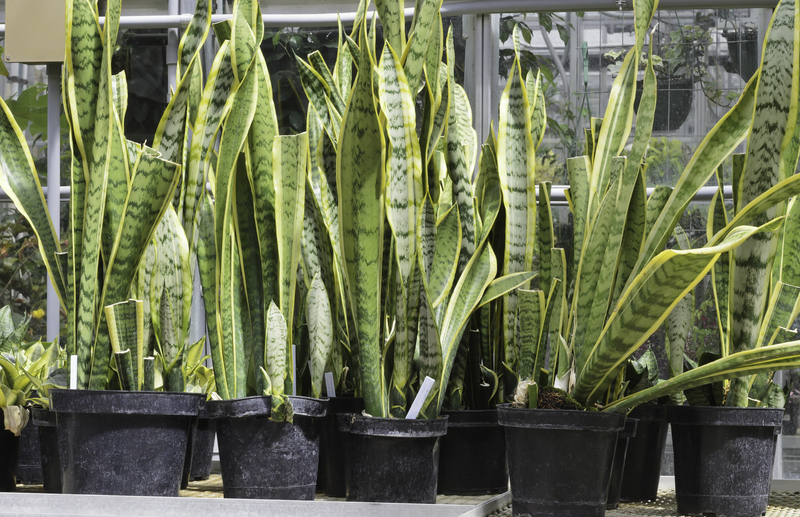Creating a Safe and Fun Child-Friendly Garden Space
Posted on 07/09/2025
Creating a Safe and Fun Child-Friendly Garden Space
Transforming your garden into a safe and fun child-friendly space is one of the best ways to encourage kids to connect with nature, stay active, and explore their creativity. With thoughtful planning, you can design an outdoor area that is both secure and stimulating, creating cherished childhood memories and family bonding opportunities. In this comprehensive guide, we'll explore everything you need to know about establishing a child-friendly garden--from safety fencing to fun play zones--so you can create a magical backyard oasis for your children.
Why Invest in a Child-Friendly Garden?
Gardening and outdoor play offer a wealth of benefits for young minds and bodies:
- Physical Health: Climbing, running, and digging improve physical strength and coordination.
- Emotional Wellbeing: Fresh air and natural surroundings help combat stress and anxiety.
- Cognitive Development: Observing plants and insects promotes curiosity and problem-solving.
- Social Skills: Outdoor areas foster cooperative play and communication.
By creating a safe outdoor space for children, you encourage healthy habits that can last a lifetime.

Planning Your Child-Friendly Garden Space
Before jumping into planting and decorating, it's essential to plan your kid-safe garden layout carefully. Here are some key considerations:
Assessing Your Garden Area
- Size & Shape: Take note of available space, slopes, shaded and sunny areas.
- Existing Hazards: Identify potential dangers like ponds, sharp tools, slippery surfaces, or toxic plants.
- Visibility: Ensure you can easily supervise your children from various points in your house or garden.
Involving Children in Garden Design
Letting kids help with design decisions ensures the garden reflects their interests and gives them a sense of ownership. Ask them:
- What outdoor games do they enjoy?
- Do they want to help grow their own flowers or vegetables?
- Would they love a mud kitchen, playhouse, or water feature?
Garden Safety: The Top Priority
The foundation of a safe child garden is eliminating hazards and providing a secure environment for exploration. Pay particular attention to the following elements:
Safe Fencing and Boundaries
Ensure your garden is enclosed with secure, child-proof fencing and lockable gates. This prevents wandering and deters unwanted visitors. Consider:
- Railings without wide gaps where kids might squeeze through
- Fencing at least 1.2 meters high for younger children
- Sturdy latches placed high out of reach
Hazard-Free Surfaces
Choose surfaces that minimize the risk of scrapes and falls. Ideal options for a child-safe outdoor space include:
- Soft grass or artificial turf
- Rubber safety mats under play equipment
- Bark chips or sand for cushioning landings
- Smooth, non-slip paving stones
Avoid gravel, sharp-edged stones, or hard concrete in high-traffic play areas.
Careful Plant Selection
Some common garden plants are surprisingly toxic if touched or ingested. When designing your child-friendly backyard:
- Avoid: Foxglove, lily of the valley, daffodil bulbs, laburnum, oleander, nightshade, and yew.
- Choose safe alternatives like sunflowers, nasturtiums, marigolds, sweet peas (flowers only), and strawberries.
- Label and teach children what not to touch or eat.
Safe Storage
Store sharp tools, garden chemicals, and breakable pots safely out of reach. Opt for lockable sheds, cabinets, or storage benches for peace of mind.
Designing Fun Play Zones
A successful child-friendly garden should inspire imagination and active play. Divide your garden into interactive zones packed with sensory stimulation and adventure.
Creative Play Spaces
- Playhouse or Den: Create a magical retreat. Prefab playhouses, teepees, or even a tent draped over a washing line all work well.
- Mud Kitchen: Repurpose old pots, pans, and utensils for messy, imaginative cooking and potion-making.
- Sandpit: Sunken or raised, with a weatherproof cover to keep it clean. Add scoops, buckets, and digging tools.
Active Physical Play
- Swings and Slides: Sturdy, age-appropriate equipment securely anchored to the ground.
- Climbing Frames and Obstacle Courses: Encourage coordination and confidence. Use wood, tires, or rope ladders.
- Bouncy Balls, Skipping Ropes, and Space for Running:
Nature Exploration Zones
- Mini Wildlife Garden: Plant pollinator-friendly flowers, install a bug hotel, and hang a bird feeder.
- Water Play: A shallow, self-contained water table or splash pad promotes safe water play without the drowning hazard of deeper ponds.
- Vegetable Patch or Strawberry Beds: Give children their own corner to plant seeds and watch them grow.
Quiet and Restful Nooks
- Shaded Reading Corner: Add a waterproof bean bag or garden bench under a tree or pergola.
- Hammocks and Picnic Mats: Perfect for lazy afternoons and snack time.
- Flower Arches or Willow Tunnels: Magical spaces to hide, dream, or spot butterflies.
Encouraging Learning Through Play
The best child-friendly garden spaces offer hands-on opportunities for discovery, learning, and creativity. Consider these enriching activities:
- Simple Gardening Tasks: Let children sow seeds, water plants, and harvest fruits or veggies.
- Nature Scavenger Hunts: List things to find (a feather, a smooth stone, a red flower, a ladybird).
- Crafting with Nature: Collect leaves, twigs, and petals for art and imaginative play.
- Understanding Sustainability: Set up a compost bin or worm farm and teach about recycling waste.
- Learning About Wildlife: Observe insects, birds, and butterflies, and talk about habitats and food chains.
Maintenance Tips for a Safe, Child-Friendly Outdoor Space
Keep your child-proof garden in tip-top condition with a proactive approach:
- Regularly inspect play equipment for signs of damage or wear.
- Keep lawns trimmed and paths clear of slippery leaves or debris.
- Check fences and gates for stability and repair as needed.
- Clean sandpits, mud kitchens, and water tables frequently to prevent mold or pests.
- Remove weeds and monitor for any new plant growth that could be toxic.
Making Your Garden Accessible for All Ages and Abilities
Ensure your children's outdoor space is accessible to everyone, including siblings of different ages or family members with limited mobility.
- Wide, level pathways for pushchairs and wheelchairs.
- Raised beds for easy gardening without kneeling or bending.
- Gentle ramps instead of steps wherever possible.
- Visual boundaries (e.g., colored edging) to help children with visual impairments.
Safety Reminders & Parental Supervision
While a well-designed kid-safe outdoor area reduces risks substantially, parental supervision is always essential.
- Set clear ground rules about where kids can and cannot go.
- Teach children about plant safety and why not to eat or touch unknown plants.
- Close gates and lock sheds after use to maintain the secure environment.
- Keep a basic first-aid kit handy for outdoor scrapes and bites.
With a few straightforward safety precautions, you'll feel confident about letting children explore and learn independently in their garden sanctuary.

Adding the Finishing Touches: Personalizing Your Child-Friendly Garden
The final step in making your safe and fun child-friendly garden space truly special is personalization. Here are a few ideas to spark joy:
- Colorful Planters: Let children decorate pots with paint or waterproof stickers for their plants.
- Outdoor Art Gallery: Hang weatherproof frames for paintings or display found objects like shells and pinecones.
- Stepping Stones: Create a painted hopscotch trail or stepping stones with your child's handprints.
- Wind Chimes and Mobiles: Hang in trees for sound and movement.
- Mini Signposts: Label "Jack's Veg Patch," "Fairy House," or "Butterfly Garden."
- Solar Lights: Add twinkling magic in the evening for safe dusk play.
Conclusion: The Joy of a Child-Friendly Garden
Creating a safe and fun garden for children is about more than fences and play equipment--it's about imagination, laughter, and a lifelong bond with the outdoors. By thinking ahead and involving your kids in the process, your garden can become a beloved space for adventure, growth, and family time, season after season. Whether you have a sprawling backyard or a compact city plot, these tips will help you design the ultimate child-friendly outdoor haven.
Ready to start designing your safe child-friendly garden space? Involve your family, prioritize safety, and don't forget to have fun along the way. Watch your little ones flourish--right outside your door!
Latest Posts
Discover the key to blooming orchids
Sow Seeds, Save the Earth: Gardening's Climate Change Benefits
Explore the Heights of Horticulture with Vertical Gardens
Transform Your Garden with 9 Fast-growing Privacy Hedge Options

